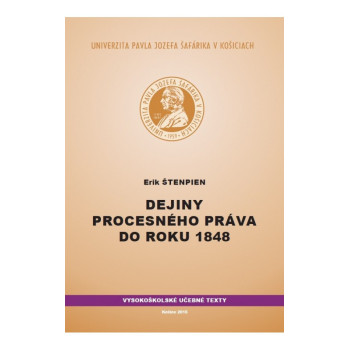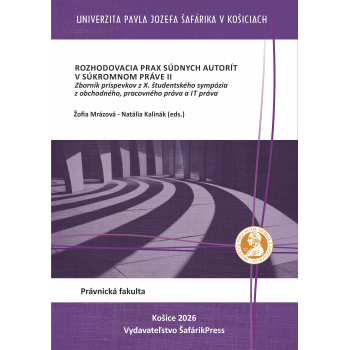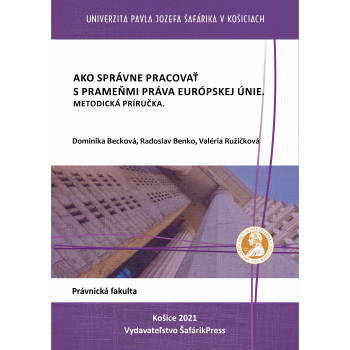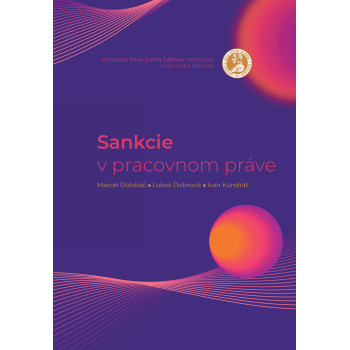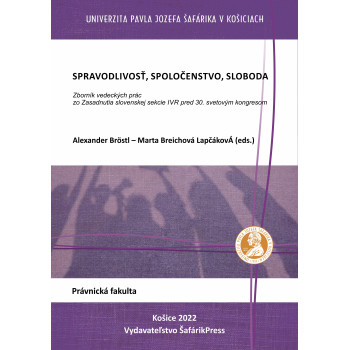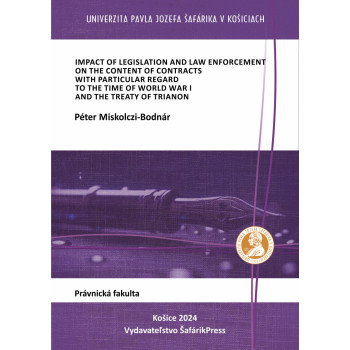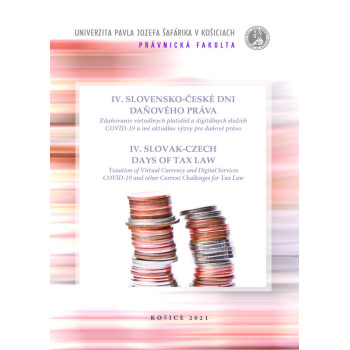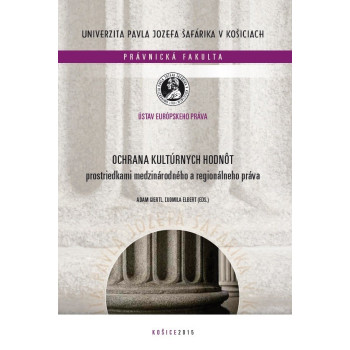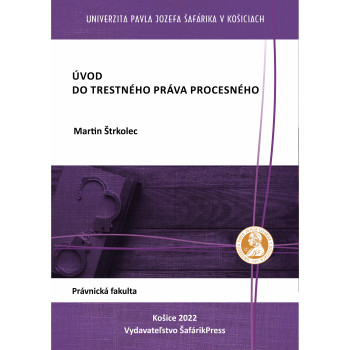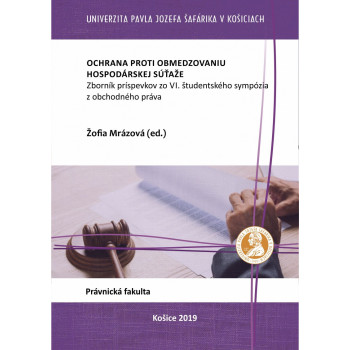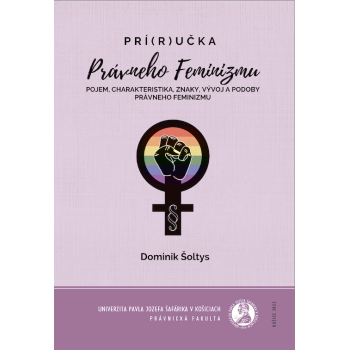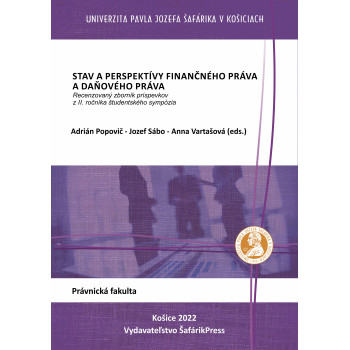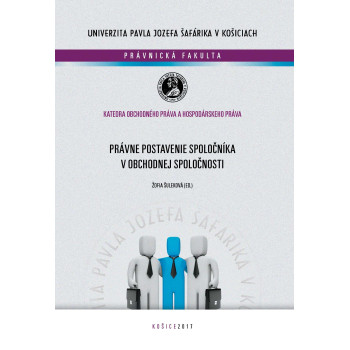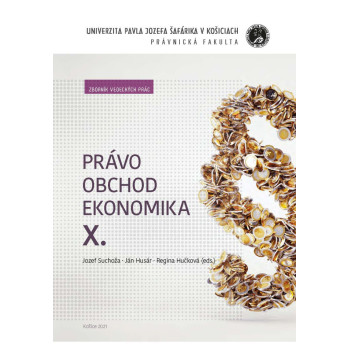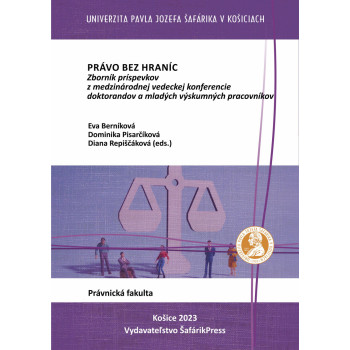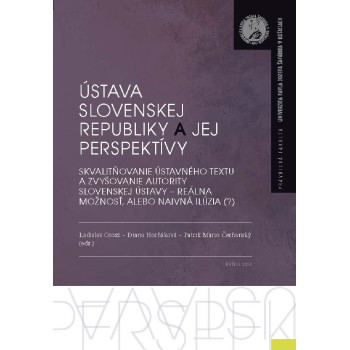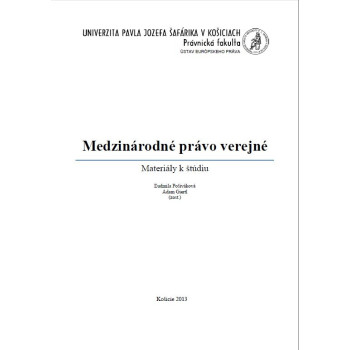E-book
Eva Berníková - Dominika Pisarčíková - Diana Repiščáková (eds.)
Proceedings of the International Scientific Conference of Doctoral Students and Young Researchers
At the Department of Constitutional and Administrative Law of the Faculty of Law at Pavol Jozef Šafárik University in Košice, a research team led by the principal investigator Associate Professor JUDr. Radomír Jakab, PhD., is conducting a research project entitled "Extraterritorial Effects of Foreign Administrative Decisions in the Conditions of the European Union," supported by a grant from the Scientific Grant Agency under number 1/0187/22.
The aim of this project is the scientific examination of the extraterritorial impact of administrative decisions of the EU member states on the territory of other member states, in order to assess the need, possibilities, and desirable scope of harmonizing legal regulation among EU member states to enhance the free movement of administrative decisions within the European Union. On April 27, 2023, in connection with the project, an international scientific conference of doctoral students and young researchers titled "Law Without Borders" was held, attended by doctoral students and young researchers from Slovak as well as foreign universities.
At this conference, contributions based on various legal systems were presented to highlight the interweaving and mutual influence of different legal orders. The conference featured presentations not only from positive law disciplines but also from theoretical and historical legal perspectives. Scientific papers based on these contributions were compiled in the proceedings.
Download the e-book for free (pdf)
